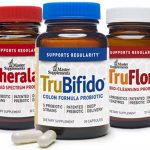If you are new to this site, you should first read my How I Cured My Silent Reflux article as it explains the underlying root causes of acid reflux, its corresponding treatments, and provides the necessary context to follow some of the concepts in this episode.
Episode Transcript
(Note this is not a word-for-word transcription - it's loosely paraphrased. Alternatively, feel free to watch on YouTube).
One of the more embarrassing moments of my working life was a few years into a career in Information Technology at a fortune five company. A week earlier my boss asked if I would be interested in moving into a role where I would build and steward financial plans for senior management.
He told me my name would be put in the hat for the role so it wasn’t guaranteed. Naturally, this seemed like a way I could move up from my role as a software engineer so after praying about it I said yes. A few days later, I was invited to a meet and greet with the most senior leaders of the IT organization, those that reported to the Chief Information Officer.
This was both exciting and terrifying for me as I had recently begun experiencing anxiety attacks. They were sorta sporadic except for when it really mattered. Then they were quite consistently at the worst possible times! I had recently started taking prescription reflux medications so my reflux was new and the anxiety attacks were new. Sadly I didn’t put two and two together.
Unfortunately luck was NOT on my side. In fact, my anxiety was in overdrive for this event. I broke out in spontaneous full body sweats through the entire event. In the course of an hour I must have made 20 trips back and forth to the restroom to towel off and try to regain a shred of dignity.
I was very sure after that cringeworthy performance that there was no chance I would be selected for this role. I mean, who breaks out into buckets of sweat during small talk? God clearly had my back on this one because I did get the job!
Over the next 15 years, however, my escalating physical and psychological issues were a constant trial as I took on increasing responsibility in my career. These experiences are the reason I am so passionate about researching and sharing what I have learned about this terrible disease.
Welcome
Welcome to episode #1 of The Reflux Cycle show. My name is Don, aka The Acid Reflux Guy.
In this episode I want to talk about the connections between acid reflux and mood disorders such as persistent anxiety, stress, and depression.
This pairing may seem odd at first, but if you think about it, we sort of intuitively and culturally understand the connection between our brain and our guts.
Just think about some of the language we use to describe stressful situations such as: kick in the gut, gut reaction, gut check, butterflies in the stomach, having a feeling in your gut, and feeling gutted.
And I’m very sure you’ve been hangry at least once in your life 🙂 You know, when you’re so hungry, you’re angry. Hangry?
Most of us have experienced gut wrenching moments in our lives. I’m referring to those moments when your stomach is tied in knots, your bowels loosen, and you may lose your appetite.
Today’s episode on anxiety and gut health is a broad topic, and so I’ve broken it up into three parts: Part 1 the enteric nervous system, Part 2 stress / gut connection, Part 3 learnings from medical research. See the timestamps in the show notes to jump to specific sections.
Before we dive in, I do need to remind you that the information included in this show is for educational purposes only and is not intended to be a substitute for medical treatment by a healthcare professional. Because of unique individual needs, listeners should consult their physician to determine the appropriateness of the information for their situation.
The Enteric Nervous System
I really like this quote from the Institute for Functional Medicine, it says
“Connections between brain and gut abound, which are often apparent in the dysfunctions that often unite them. Many neurological and mood disorders often have enteric manifestations.”
This quote is referring to the enteric nervous system, which is the brain of the digestive system. Literally. The human brain has 86 billion neurons, which enable it to process information and conduct the symphony that is the human body.
The enteric nervous system has 500 million neurons of its own. In addition to choreographing digestive function, it streams real time updates leveraging its vast sensory network and constant communication with the 100 trillion microbes that colonize our gut. For this reason, scientists are increasingly referring to the enteric nervous system as our second brain!
The Stress / Gut Connection
Normally, the brain is content to allow the enteric nervous system to oversee gastrointestinal function without interfering. When the body is subjected to stress, however, the brain diverts blood flow away from the digestive system to support your fight and flight response.
An article from Hyperbotics explains why this hostile takeover by the brain can lead to additional psychological issues in the case of persistent stress. It says that
“Ongoing restriction of digestive blood flow brought on by long-term stress takes its toll on the gut in more significant ways than just butterflies though, by reducing microbial diversity and lowering numbers of friendly flora, thereby creating conditions that encourage undesirable strains [of bacteria] to thrive. Additionally, the immune system, most of which resides in the gut, doesn’t receive the influx of fresh blood it needs to function optimally.
This excerpt highlights the direct effects of psychological stress on the 4-5 lbs of microbes that colonize the human body, especially in the gut.
There are three categories of microbiota in what’s known as your microbiome. These are symbiotic, pathogenic, and commensal bacterial strains.
The symbiotic bacteria in your body are often referred to as probiotics. These beneficial bacteria work in harmony with the body to optimize digestion, vitamin absorption, synthesize hormones, regulate immune function, reduce inflammation, support healthy gut lining, and more. They provide these benefits in exchange for the opportunity to feast on the indigestible fiber in your food.
The pathogenic variety are harmful microbes and opportunists that live on fats, sugars, etc.. found in your diet. In contrast to the symbiotic bacteria which offer healthful benefits, these microbes live off your body and will do anything to gain advantage, even if it is at the expense of the host body.
That leaves commensal bacteria, which live off of your body and the nutrients in your food as the others do, but they do not offer any known health benefits. That said, if the colonies of commensals are reduced then it leaves room for bacteria to take root. Unfortunately, it is most often the more aggressive pathogenic bacteria that win out.
An article from Johns Hopkins Medicine sheds some light on the effects of these bacterial imbalances. It shares that
“The enteric nervous system may trigger big emotional shifts experienced by people coping with irritable bowel syndrome (IBS) and functional bowel problems such as constipation, diarrhea, bloating, pain and stomach upset. “For decades, researchers and doctors thought that anxiety and depression contributed to these problems. But our studies and others show that it may also be the other way around,”
Feel like you've done all the things and are just not seeing progress? I've helped a lot of people over the years that felt the same way. Perhaps an at home microbiome test can help break the cycle and provide the insights you need to move froward. With it, you can test your gut microbiome and receive actionable recommendations on how to optimize your digestive health with the BIOHM Gut Report.
I have arranged a 20% discount if you use the code THEACIDREFLUXGUY at checkout!
Looking at data from the Anxiety & Depression Association of America and Johns Hopkins Medicine, we can see that those with IBS or other functional bowel disorders are up to 6x more likely to suffer anxiety or depression than the general population. In fact, an estimated 30-40% of people who experience functional bowel issues also experience anxiety and depression at some point.
In addition, as this US National Library of Medicine article explains
“Stress and mood disorders compound one another. Several studies show differences in the gut microbiota’s composition and function in individuals with major depressive disorder, compared to healthy controls. Some data suggest that proinflammatory species can dominate at the expense of health-promoting species in depressed individuals”
Later, that same article continues that:
“Existing evidence suggests bidirectional relationships among stress, mood, diet, and the gut microbiota, which ultimately form either a vicious or virtuous cycle. These mind–body, human–bacterial relationships help to explain both resilience and chronic disease.”
One reason for this connection is that beneficial gut bacteria play a key role in the production of neurotransmitters like serotonin that regulate gut function, mood, memory and learning.
So, not only do mood disorders contribute to gut health problems, but gut health problems contribute to mood disorders.
Disclosure: This is a free website so I do advertise to cover the costs of website hosting and other services. If you find the information on this site useful, please consider making a purchase using the following links as I will earn a small commission at no cost to you.
Medical Research
I’d like to shift gears a bit and take a look at this through the lens of medical research via animal testing. It turns out that microbes are an essential part of digestion for almost all life on the planet. Given this common design pattern, researchers are able to look at the digestive systems of lab animals and discover potential treatments that can benefit mankind.
Bacterial Diversity
One such study was featured by the American Psychological Association. In it, researchers found that monkeys and mice exposed to persistent stress had reduced diversity of the gut microbiome, especially Lactobacillus and Bifidobacterium. In addition, they suffered overgrowth of harmful bacteria, resulting in increased susceptibility of infection and gut inflammation (study 2, study 3).
Pathogenic Mutation
But check out this next article from Forbes:
“A genetic analysis found genes linked to “violent traits” switched on, which, according to the study, increase growth, movement, and signaling between bacteria and host. In other words, the bacteria appear to have turned into destructive pathogens with enhanced ability to travel through the body and infect tissue. Further analysis of the lymph nodes of the stressed mice confirmed that [immune stem cells] characteristic of autoimmune disorders. When taken together, these results suggest that a percentage of the stressed gut bacteria in the mice became pathogenic and infected their tissue, leading to the immune system attacking the body.”
Amazingly, this study demonstrates that certain genes in good bacteria can be switched on, turning them pathogenic. Once barriers such as the gut lining have been compromised bacteria are able to infiltrate other areas of the body, a condition called leaky gut. Naturally, this triggers an inflammatory immune response which can lead to a host of autoimmune disorders.
As an example of this, consider h pylori or heliobacter pylori bacteria, which is a well known bacteria among acid reflux sufferers. Many, like me, have been tested for h pylori to determine if it was the cause of escalating symptoms.
Amazingly, according to the CDC h pylori is estimated to be present in the gut of 50% of the global population, yet causes no harm in 85% of individuals. It has even been shown in some studies to deliver health benefits. However, when it is allowed to proliferate out of control and turn pathogenic it becomes a significant cause of significant digestive disorders.
Fecal Microbiota Transplants
Now, this next bit of research really blew my mind when I first learned of it. Results from two human studies found that the microbial community of individuals with major depression differed significantly from those of healthy individuals.
Fecal samples from the depressed volunteers were then transferred into mice via fecal microbiota transplant, which is basically a reverse enema. Amazingly, these rats began to exhibit behavioral signs of depression.
By the way, the technique, called fecal microbiota transplant or FMT, has shown to be effective in Irritable Bowel Syndrome as well as in reducing the symptoms of some autoimmune diseases such as Parkinson’s and autism.
Probiotics
The last set of studies I want to mention demonstrate that by introducing a specific strain of probiotic bacteria called lactobacillus, mice produced lower levels of stress hormones and were less likely to give up and just start floating in a “forced-swim” test.
Another study wanted to determine if the enteric nervous system played a role in this three way communication between the gut, microbiome, and the brain. This follow-on study repeated the experiment, but then cut the vagus nerve, which is the cranial nerve that carries messages from the enteric nervous system to the brain. In these causes, the mice with the surgical removal did not see an improvement in anxiety and depression.
 This is the probiotic gut reset program that I did after healing my acid reflux. Even so, I could feel the difference and improved resilience in my gut. I did 10 days of each probiotic in sequence. Be sure and ramp up your daily fiber intake to 35-50 grams daily to support the probiotics.
This is the probiotic gut reset program that I did after healing my acid reflux. Even so, I could feel the difference and improved resilience in my gut. I did 10 days of each probiotic in sequence. Be sure and ramp up your daily fiber intake to 35-50 grams daily to support the probiotics.
Review
Let’s do a quick rundown of the key takeaways. By looking at several studies we have established a bi-directional link between the mind and the gut, in that persistent mood disorders affect the microbial balance of the gut. Also, persistent gut health issues can negatively affect a person’s mental state. Given the bi-directional nature, these effects can form a vicious, rather than virtuous cycle, one of many mechanisms that can keep you spinning on The Reflux Cycle.
Additionally, the Gastrointestinal tract is governed by the body’s second brain, the enteric nervous system, which interprets and relays signals from the digestive process as well as the state of the microbiome or microbial community in the GI tract. In the case of stress the brain can override the enteric nervous system by diverting blood flow away. If this is persistent, the microbial community suffers, which can lead to digestive, immune, autoimmune, mood disorders, and more.
Lastly, by looking at animal studies and some human clinical work we see that the microbial community can be transferred from one host to another and the recipient host can take on the characteristics of the doner, whether good or bad, directly implicating these microbes in the resulting physiological and psychological changes that result. Similarly, probiotics can have positive benefits, provided the enteric nervous system is otherwise intact and healthy.
So now we have a high level understanding of how our mental state can impact our physical well being and vice versa. But, what specifically are the implications of microbial imbalance?
According to articles from Institute for Functional Medicine and Atlas BIOMed, it’s a long list including
-
- reduced commensal bacteria, which opens the door for pathogenic bacteria to overgrow
- poor gut motility, resulting in indigestion, bloating, inflammation, reduced immune function, and of course directly results in typical reflux symptoms
- lower nutrient absorption, most commonly b12, magnesium, and calcium for reflux sufferers. For more on this goto youtube.com/theacidrefluxguy and watch my video called ‘Surprising Acid Reflux Symptoms & Side Effects’
- Inflammation and compromised immune function, which can lead to inflammatory and cognitive issues, autoimmune issues such as celiacs, allergies, and more
- impaired microbiome regulation, culminating in lower hormone production leading to anxiety, depression, sleep problems, reduced enteric nervous system function, reduced immune function
- improper autonomic nervous system responses such as rapid heart beats, other strange sensations often after eating
- damaged adrenal function, resulting in hormone imbalances
- reduced vagal tone, eliciting poor digestive function, hormone production, poor inflammatory and immune responses, leaky gut
Now, I feel it’s time for me to come clean on something. I have to admit that when I first began learning more about reflux I kept hearing the term leaky gut. I ignored it for months thinking it to be some term that gained popularity on the internet, with little scientific backing. I later came to realize leaky gut, gut permeability, thinned gut lining, thinned mucosal layer all refer to the same thing, and it’s indeed a thing.
Once this occurs, food contents and pathogens are able to escape the stomach, into the bloodstream where they cause inflammatory reactions throughout the body and in the brain. As I study this further, I now realize this is likely the cause of my cognitive issues.
Increasingly, over 15 years I had trouble concentrating on the simplest of conversations, often causing me to lose the point or fail to make connections. This contributed to my growing anxiety as embarrassment in social settings was included in my ever growing list of concerns. As a result of my memory and concentration issues, I grew accustomed to experiencing life one scene at a time, which made for an incredibly stressful working and personal life.
I’m going to cut the episode here. There is, of course, a lot more that we could discuss in this episode. In fact, my first recording of it was over an hour and based on 35 pages of notes. As always, references in the show notes so please check them out if you want to explore any topics in further depth. Let me know if I’ve struck a good balance with the details in this episode. You can let me know in the comments or by leaving feedback on the show.
Speaking of feedback, I’d like to take a look at some of the comments you left on the last podcast episode:
Todd said You’re off to a great start with this pilot episode. It’s clear there are two realities when it comes to use of Proton Pump Inhibitors. One one hand, FDA guidelines state clearly that proper PPI dosage is 20mg daily, and the duration should not exceed two weeks and should not be repeated more than three times per year. On the other hand, physicians are quick to double or even quadruple this dosage and allow the duration to extend months or even years.
Vanessa says “Thank you so much for this video, mum and I are suffering with all the same issues. We are relieved to have found your support and a pathway forward. Thank you for your time, understanding and for sharing your gift, much appreciated”
A L says “Thank you for sharing what has worked for you and for actually having references to studies. May many people find relief from their suffering through your work.”
Rama says “I’m very much looking forward to the next of your podcast episodes”
Thank you all for your comments and encourage me. It keeps me going.
I would love for this show to be crowdsourced and for the direction to be based on your input so leave a review, give me some feedback.
Remember, before you try another reflux remedy, be sure that you can explain how it helps to get you off of the reflux cycle, by addressing the underlying causes of reflux
If you want to know more about ways that addressed the physical and psychological effects of reflux then you can go to theacidrefluxguy.com/getstarted
My name is Don Daniels aka The Acid Reflux Guy, this was episode 1 of The Reflux Cycle show. Signing off.
Connect With Me
 Take advantage of my daily tips on Instagram, YouTube, or join my mailing list to learn how hundreds, just like you, have taken control of their health!
Take advantage of my daily tips on Instagram, YouTube, or join my mailing list to learn how hundreds, just like you, have taken control of their health!
Don Daniels
Latest posts by Don Daniels (see all)
- The Purple Lie We’ve All Been Sold. Proof Inside - December 22, 2023
- I Had Reflux for 15 Years. Here’s What I Learned - December 15, 2023
- 5 At Home Low Stomach Acid Tests for Reflux - September 11, 2023



